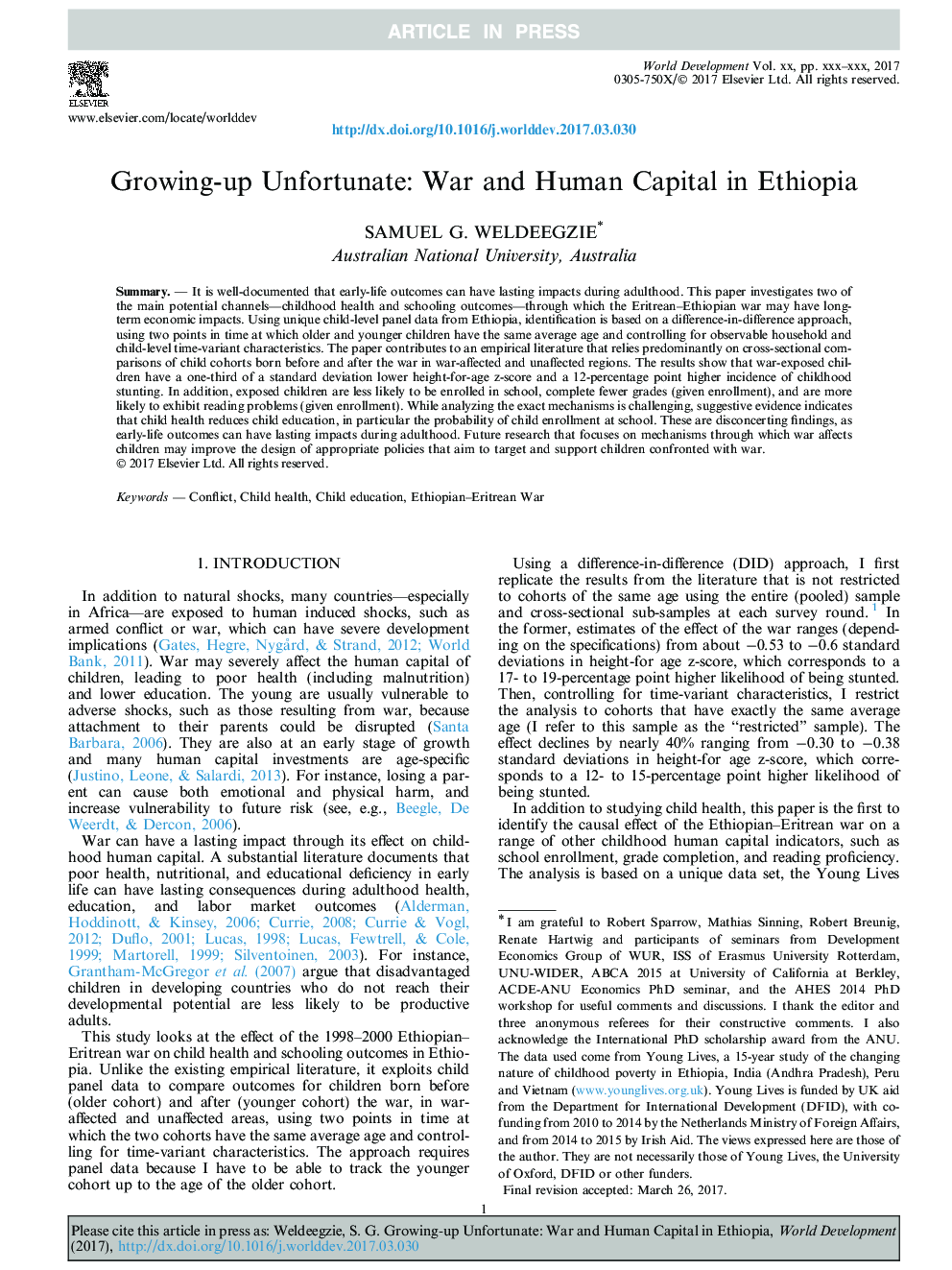| Article ID | Journal | Published Year | Pages | File Type |
|---|---|---|---|---|
| 5105074 | World Development | 2017 | 16 Pages |
Abstract
It is well-documented that early-life outcomes can have lasting impacts during adulthood. This paper investigates two of the main potential channels-childhood health and schooling outcomes-through which the Eritrean-Ethiopian war may have long-term economic impacts. Using unique child-level panel data from Ethiopia, identification is based on a difference-in-difference approach, using two points in time at which older and younger children have the same average age and controlling for observable household and child-level time-variant characteristics. The paper contributes to an empirical literature that relies predominantly on cross-sectional comparisons of child cohorts born before and after the war in war-affected and unaffected regions. The results show that war-exposed children have a one-third of a standard deviation lower height-for-age z-score and a 12-percentage point higher incidence of childhood stunting. In addition, exposed children are less likely to be enrolled in school, complete fewer grades (given enrollment), and are more likely to exhibit reading problems (given enrollment). While analyzing the exact mechanisms is challenging, suggestive evidence indicates that child health reduces child education, in particular the probability of child enrollment at school. These are disconcerting findings, as early-life outcomes can have lasting impacts during adulthood. Future research that focuses on mechanisms through which war affects children may improve the design of appropriate policies that aim to target and support children confronted with war.
Keywords
Related Topics
Social Sciences and Humanities
Economics, Econometrics and Finance
Economics and Econometrics
Authors
Samuel G. Weldeegzie,
